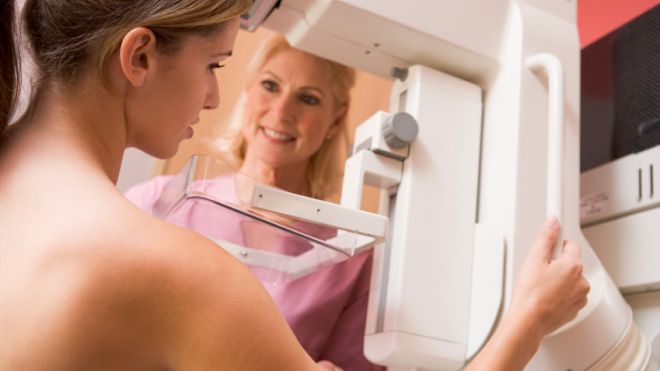
Women’s health care has a big problem, and we women are the cause of it.  That sounds like a broad statement, but I believe for the majority of women it is the truth.   When it comes to women’s health care, we have a pretty easy time talking about the big picture. We discuss statistics and trends and how women don’t receive the same levels of service as men when it comes to research studies and early diagnosis in the United States. But that kind of talk doesn’t get down to the nitty-gritty problem that each one of us faces when it comes to our health.  I’m not saying there is one universal condition or illness, as we each have unique issues to confront.  But as a gender, we women just don’t put the same effort into caring for ourselves as we put into caring for our families. As a women’s health advocate, that raises a giant red flag for me – and it for all of us. One of the first symptoms of this problem is that we don’t take ownership of our own health. We put it into the hands of others and hope for the best.  When we actually get around to going to the doctor, we don’t tell him or her the complete truth.  Sometimes it’s an accident, as we just don’t remember to talk about certain things or we don’t realize something might be significant. Other times – and these are the worst – we choose not to talk about things because we are embarrassed or afraid of what the doctor will say.   We see this kind of thing on EmpowHer.com all the time.  Women come to us and post anonymous questions about being gassy or bloated or incontinent.  They know they might have a problem, but for whatever reason, they don’t want to talk to the doctor about it. Don’t get me wrong: Anonymous questions are always welcome. In fact, we encourage our visitors to choose screen names that don’t give away who they really are.  But the fact that women are ashamed or afraid to have a one-on-one conversation with their doctors about these issues is a symptom of how we collectively don’t do everything we can to safeguard our own health.   Stress is another issue for us as women.  We know that stress taxes every aspect of our bodies – from our hormones to our cells.  But instead of doing things for ourselves to relieve stress, we try to be wonder-women and take on the weight of the world.  And in the process, we put our own health at risk and potentially damage our ability to take care of our families. Of course, some types of stress can’t be avoided.  I’m thinking in particular of financial concerns.  When money is tight, we women often cut our own “indulgences” so we can keep funding the things our families enjoy doing. Ladies, listen up when I tell you that going to the doctor is not an indulgence.  Getting your annual exam is not something extra that you should put off until it’s convenient or until you have some extra money lying around.  Don’t let the economy dictate your health.   It’s a simple fact that no matter how much disposable income you have, you cannot buy your way out of being sick.  There isn’t enough money in the world to buy your way out of a hard diagnosis like cancer.  And there isn’t enough money in the world to turn back the clock to get an earlier diagnosis or restore treatment options if you waited too long to get tested. It’s time for women in this country to stand up for themselves, and if you won’t do it for yourself, do it for your mother or your sister, your best friend or your daughter.  Be the brave one, or the smart one.  Be the one who sets the example of taking care of your family by taking care of yourself.   And don’t stop with yourself.  Share this with other women you care about and encourage them to take better care of themselves.  Your family and everyone who loves you will be glad you did.Michelle King Robson (pronounced robe-son) is one of the nation's leading women's health and wellness advocates. She is the Founder, Chairperson and CEO of EmpowHER, one of the fastest-growing and largest social health companies dedicated exclusively to women's health and wellness. & In 2011 EmpowHER reached more than 60 million women onsite and through syndication expects to reach more than 250 million in 2012.source : http://www.foxnews.com/health/2013/05/20/women-break-trend-take-care-yourself/
